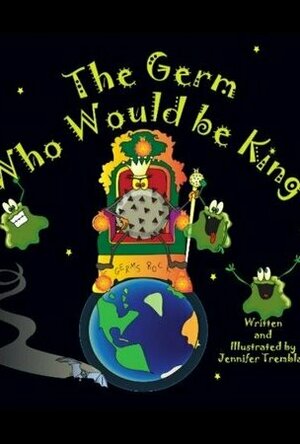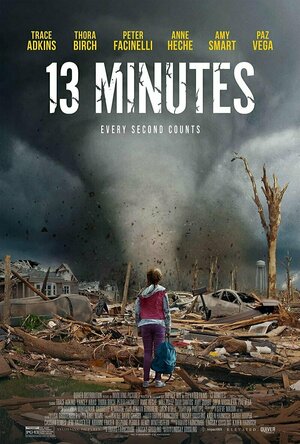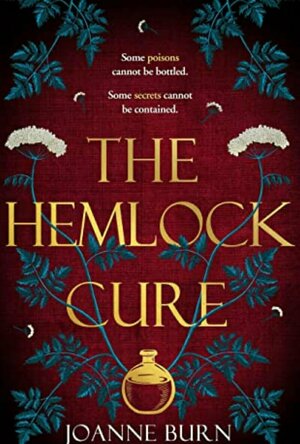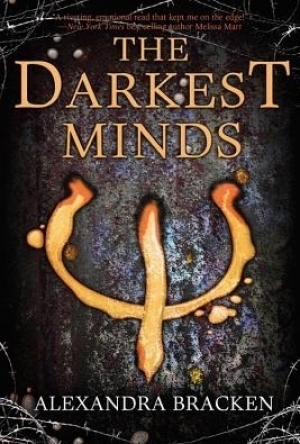Search
Search results
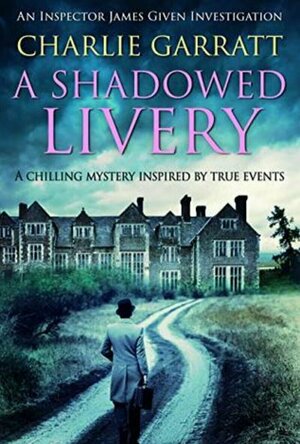
A Shadowed Livery (Inspector James Given Investigations #1)
Book
The first book in a page-turning historical mystery series! Perfect for fans of Agatha Christie,...
Historical Fiction Pre-World War 2
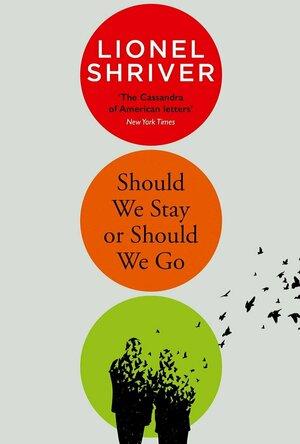
Should We Stay or Should We Go
Book
When her father dies, Kay Wilkinson can’t cry. Over ten years, Alzheimer’s had steadily eroded...
Otway93 (580 KP) rated Resident Evil (2021) in Movies
Feb 13, 2022
Story (1 more)
Nostalgic
Casting (1 more)
Character Traits
A fun film, but not without obvious flaws.
Resident Evil: Welcome to Raccoon City is a great film. It attempts to combine key elements from the first 3 Resident Evil games into one movie, which kind of works, and kind of doesn't at the same time. Expect a lot of familiar moments and memorable key moments from the story of Raccoon City, but also don't get too excited because a lot of key moments and characters are missing entirely.
The film should have been two films really, the first covering the Mansion Incident, and the second covering the outbreak in Raccoon City.
The characters, while being most of the best known characters from the original game, are present yet at the same time not quite right. The casting, while not terrible, did make some mistakes, mostly in Tom Hopper's portrayal of Wesker, he just seems far too young for the role. But that isn't the only issue. The character's personalities are not as you remember them.
Chris comes across as very arrogant and annoying, Jill comes across as quite sassy, and poor Leon, the rookie cop seems to be a bumbling fool there for comic relief.
The best written and acted character by a long way is Claire, who comes across as the little rebel we know and love.
All in all, definitely worth a watch, and I will definitely watch it again. But if you are a huge Resident Evil nerd such as myself, it will certainly have it's moments for you, but don't go in expecting to see the entire story of Raccoon City unfold before your eyes.
Also, don't forget to keep watching the credits...
The film should have been two films really, the first covering the Mansion Incident, and the second covering the outbreak in Raccoon City.
The characters, while being most of the best known characters from the original game, are present yet at the same time not quite right. The casting, while not terrible, did make some mistakes, mostly in Tom Hopper's portrayal of Wesker, he just seems far too young for the role. But that isn't the only issue. The character's personalities are not as you remember them.
Chris comes across as very arrogant and annoying, Jill comes across as quite sassy, and poor Leon, the rookie cop seems to be a bumbling fool there for comic relief.
The best written and acted character by a long way is Claire, who comes across as the little rebel we know and love.
All in all, definitely worth a watch, and I will definitely watch it again. But if you are a huge Resident Evil nerd such as myself, it will certainly have it's moments for you, but don't go in expecting to see the entire story of Raccoon City unfold before your eyes.
Also, don't forget to keep watching the credits...
Emma @ The Movies (1786 KP) rated Thirteen Minutes (2021) in Movies
Feb 25, 2022
A new disaster film, cue excitement. Even a low budget disaster film can be good…
Life is disrupted when a storm turns its eye on a small town. Residents are tested, and they must put their differences aside to help each other make it through safely.
... that thing I said above about even low budget disaster films being good? Yeah, I don’t know how much this cost (I’m assuming not a lot), but it was not good.
This could have been a great short that ran 13 minutes, instead, it’s 1 hour and 48 minutes long. Those extra 95 minutes are made of bloated storylines, and while they overlap, none of them really have any weight. Removing a couple could easily have allowed the others more time to develop and actually let the viewer become more invested.
Out of the cast I can’t really call out anyone. There are faces you’ll recognise from other things, and they’re generally solid actors, but in this... there wasn't really a lot for them to work with.
There are many moments that defy sensible behaviour, as you'd expect from a disaster film. Only one amused me, while the others were mainly annoying.
You either need to take yourself seriously, or embrace the inevitable ridiculousness behind the idea. If this had leaned hard into the ridiculousness it could have been great. 13 Minutes disappointed on so many levels that adding truly terrible effects may actually have helped! I won’t need to watch this again, a disaster film that barely has a disaster in it was not what I signed up for.
[Side note: Initially I gave this 2 out of 5 stars. I have since retracted a star for this film's sheer audacity.]
Originally posted on: https://emmaatthemovies.blogspot.com/2022/02/13-minutes-movie-review.html
Life is disrupted when a storm turns its eye on a small town. Residents are tested, and they must put their differences aside to help each other make it through safely.
... that thing I said above about even low budget disaster films being good? Yeah, I don’t know how much this cost (I’m assuming not a lot), but it was not good.
This could have been a great short that ran 13 minutes, instead, it’s 1 hour and 48 minutes long. Those extra 95 minutes are made of bloated storylines, and while they overlap, none of them really have any weight. Removing a couple could easily have allowed the others more time to develop and actually let the viewer become more invested.
Out of the cast I can’t really call out anyone. There are faces you’ll recognise from other things, and they’re generally solid actors, but in this... there wasn't really a lot for them to work with.
There are many moments that defy sensible behaviour, as you'd expect from a disaster film. Only one amused me, while the others were mainly annoying.
You either need to take yourself seriously, or embrace the inevitable ridiculousness behind the idea. If this had leaned hard into the ridiculousness it could have been great. 13 Minutes disappointed on so many levels that adding truly terrible effects may actually have helped! I won’t need to watch this again, a disaster film that barely has a disaster in it was not what I signed up for.
[Side note: Initially I gave this 2 out of 5 stars. I have since retracted a star for this film's sheer audacity.]
Originally posted on: https://emmaatthemovies.blogspot.com/2022/02/13-minutes-movie-review.html
ClareR (6067 KP) rated The Hemlock Cure in Books
Apr 6, 2023
The Hemlock Cure was a fascinating insight into the lives of ordinary people during the Black Death (Bubonic Plague) epidemic of 1665-1666. The plague is very much in the background of this story for most of it, though.
The real evil isn’t a disease, it’s being shut in with people who clearly do not have good intentions.
The village of Eyam is well known for the decision to shut itself off from the outside world when its inhabitants started to become ill and die. They understood that the only way to halt the spread of the disease was to isolate themselves - a selfless act.
This novel looks at some of the families and their relationships inside and outside of their family units. The local apothecary and his daughter Mae, are one such family. Mae is desperate to be her fathers apprentice, but this isn’t a time in history where it’s safe for a woman to be working with herbs. So Mae studies with the midwife and a local wise woman (who are both also skating on thin ice, truth be told).
The plague wasn’t a constant in London it appears, and we travel there with one of the main characters. The contrast between the country village and London was quite something to read. I could almost smell the difference off the page!!
I enjoyed the pacing of this book: in Eyam the time crawls, whilst in London everything is all hustle and bustle.
The slow reveal of the terrible secrets in Mae’s family are not so much shocking as terrifying. Wulfric, Mae’s father, is not a well man. It seems to be a race against time for Mae.
I would most definitely recommend this book to historical fiction fans - and if you like a mystery, you may well like this as well.
The real evil isn’t a disease, it’s being shut in with people who clearly do not have good intentions.
The village of Eyam is well known for the decision to shut itself off from the outside world when its inhabitants started to become ill and die. They understood that the only way to halt the spread of the disease was to isolate themselves - a selfless act.
This novel looks at some of the families and their relationships inside and outside of their family units. The local apothecary and his daughter Mae, are one such family. Mae is desperate to be her fathers apprentice, but this isn’t a time in history where it’s safe for a woman to be working with herbs. So Mae studies with the midwife and a local wise woman (who are both also skating on thin ice, truth be told).
The plague wasn’t a constant in London it appears, and we travel there with one of the main characters. The contrast between the country village and London was quite something to read. I could almost smell the difference off the page!!
I enjoyed the pacing of this book: in Eyam the time crawls, whilst in London everything is all hustle and bustle.
The slow reveal of the terrible secrets in Mae’s family are not so much shocking as terrifying. Wulfric, Mae’s father, is not a well man. It seems to be a race against time for Mae.
I would most definitely recommend this book to historical fiction fans - and if you like a mystery, you may well like this as well.
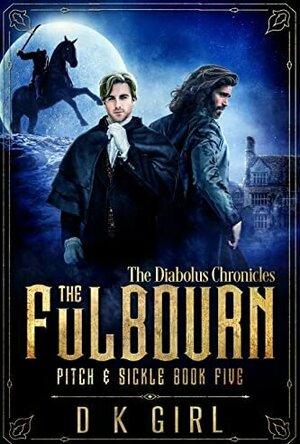
The Fulbourn (Pitch & Sickle, #5)
Book
When the King of Daemonkind comes to call, be ready for hell to follow. After Lucifer’s...
MM Historical Gaslamp Fantasy
ClareR (6067 KP) rated Nasty Little Cuts in Books
Feb 24, 2022
I learnt a new phrase today: Domestic Noir. My ignorance is probably down to the fact that I would never normally read a book in this category. I’d avoid it. I’m glad that I didn’t let it put me off this time though, and after reading Tina’s previous book ‘Call Me Mummy’, I knew that I was going to be in for one hell of a good read.
This book is phenomenal. It’s read-it-thorough-your-fingers-with-your-eyes-shut kind of phenomenal.
Reading it on The Pigeonhole, one stave a day for 10 days was a feat of endurance - the wait between staves was tortuous. This is NOT an easy read, and should probably come with some sort of trigger warning. It’s dark, emotional, visceral. It’s violent and frankly traumatic.
Debs and Marc should probably have never got together, never mind got married and had children. They’re both emotionally scarred from terrible childhoods and have never confronted, or been treated for, these psychological and physical injuries. And now they just seem to vent their feelings on one another with physical violence.
There’s loads of backstory that explains why they are in their current predicament, and honestly, I did feel some sympathy for them. But then, and Tina Baker does this so well, she gives with one hand, and snatches away with the other. Every past revelation of abuse or trauma, is bookended by domestic violence.
Honestly, it sounds horrendous, doesn’t it? But I couldn’t stop reading. As I said on The Pigeonhole: What a reading experience this has been. I’ll leave a review, but what can I say that will do this book justice?
Well, I can say this: Read It.
This book is phenomenal. It’s read-it-thorough-your-fingers-with-your-eyes-shut kind of phenomenal.
Reading it on The Pigeonhole, one stave a day for 10 days was a feat of endurance - the wait between staves was tortuous. This is NOT an easy read, and should probably come with some sort of trigger warning. It’s dark, emotional, visceral. It’s violent and frankly traumatic.
Debs and Marc should probably have never got together, never mind got married and had children. They’re both emotionally scarred from terrible childhoods and have never confronted, or been treated for, these psychological and physical injuries. And now they just seem to vent their feelings on one another with physical violence.
There’s loads of backstory that explains why they are in their current predicament, and honestly, I did feel some sympathy for them. But then, and Tina Baker does this so well, she gives with one hand, and snatches away with the other. Every past revelation of abuse or trauma, is bookended by domestic violence.
Honestly, it sounds horrendous, doesn’t it? But I couldn’t stop reading. As I said on The Pigeonhole: What a reading experience this has been. I’ll leave a review, but what can I say that will do this book justice?
Well, I can say this: Read It.
Lyndsey Gollogly (2893 KP) rated The Darkest Minds in Books
May 12, 2022
83 of 230
Book
The Darkest Minds ( The Darkest Minds book 1)
By Alexandra Bracken
⭐️⭐️⭐️
When Ruby wakes up on her tenth birthday, something about her has changed. Something alarming enough to make her parents lock her in the garage and call the police. Something that gets her sent to Thurmond, a brutal government 'rehabilitation camp.' She might have survived the mysterious disease that's killed most of America's children, but she and the others have emerged with something far worse: frightening abilities they cannot control.
Now sixteen, Ruby is one of the dangerous ones.
When the truth comes out, Ruby barely escapes Thurmond with her life. Now she's on the run, desperate to find the one safe haven left for kids like her - East River. She joins a group of kids who escaped their own camp. Liam, their brave leader, is falling hard for Ruby. But no matter how much she aches for him, Ruby can't risk getting close. Not after what happened to her parents.
When they arrive at East River, nothing is as it seems, least of all its mysterious leader. But there are other forces at work, people who will stop at nothing to use Ruby in their fight against the government. Ruby will be faced with a terrible choice, one that may mean giving up her only chance at a life worth living.
This started off so well I was really enjoying it then I sort of hit a brick wall I can’t tell you at what point I just became a little bored in the middle. It was ok just I think I wanted more from the last half of the book. The concept was really interesting and in quite frightening especially if you have kids. I don’t know something was just lacking. I’m hoping book 2 is better.
Book
The Darkest Minds ( The Darkest Minds book 1)
By Alexandra Bracken
⭐️⭐️⭐️
When Ruby wakes up on her tenth birthday, something about her has changed. Something alarming enough to make her parents lock her in the garage and call the police. Something that gets her sent to Thurmond, a brutal government 'rehabilitation camp.' She might have survived the mysterious disease that's killed most of America's children, but she and the others have emerged with something far worse: frightening abilities they cannot control.
Now sixteen, Ruby is one of the dangerous ones.
When the truth comes out, Ruby barely escapes Thurmond with her life. Now she's on the run, desperate to find the one safe haven left for kids like her - East River. She joins a group of kids who escaped their own camp. Liam, their brave leader, is falling hard for Ruby. But no matter how much she aches for him, Ruby can't risk getting close. Not after what happened to her parents.
When they arrive at East River, nothing is as it seems, least of all its mysterious leader. But there are other forces at work, people who will stop at nothing to use Ruby in their fight against the government. Ruby will be faced with a terrible choice, one that may mean giving up her only chance at a life worth living.
This started off so well I was really enjoying it then I sort of hit a brick wall I can’t tell you at what point I just became a little bored in the middle. It was ok just I think I wanted more from the last half of the book. The concept was really interesting and in quite frightening especially if you have kids. I don’t know something was just lacking. I’m hoping book 2 is better.
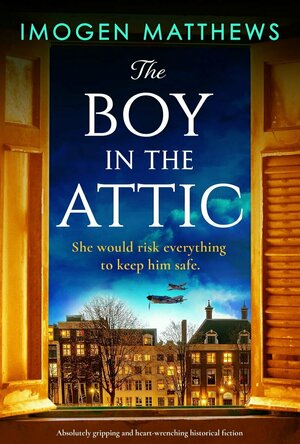
The Boy in the Attic (Wartime Holland Book 3)
Book
Anna opened the letter with trembling hands. ‘My darling, if you’re reading this, I haven’t...
